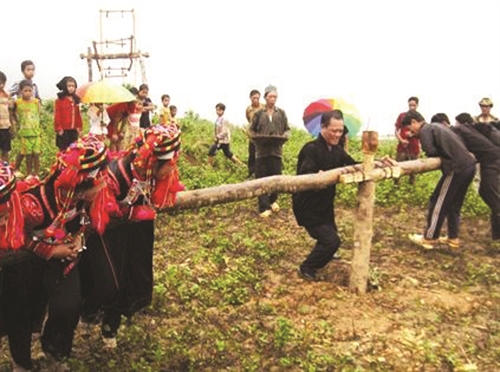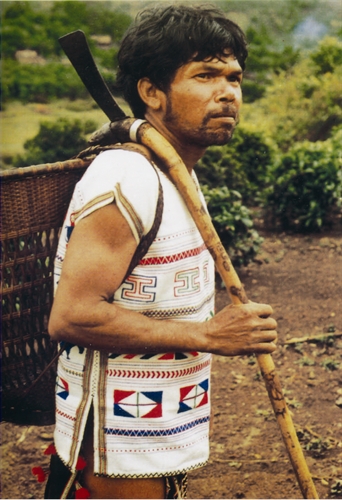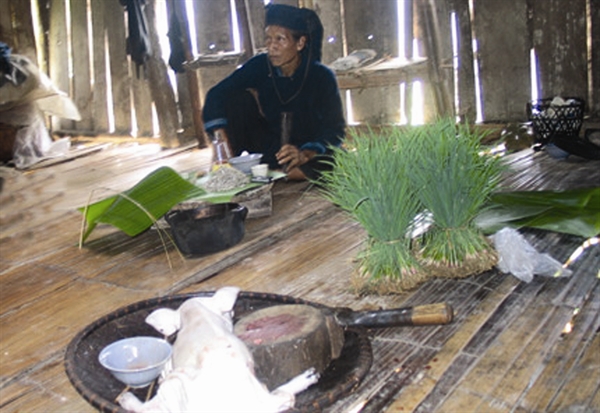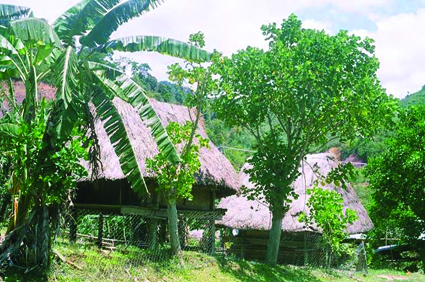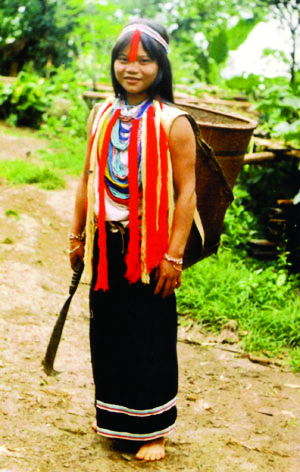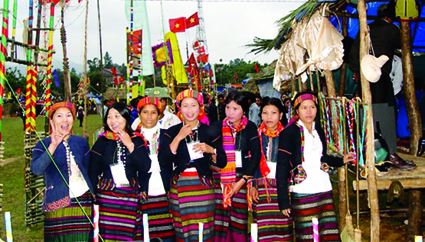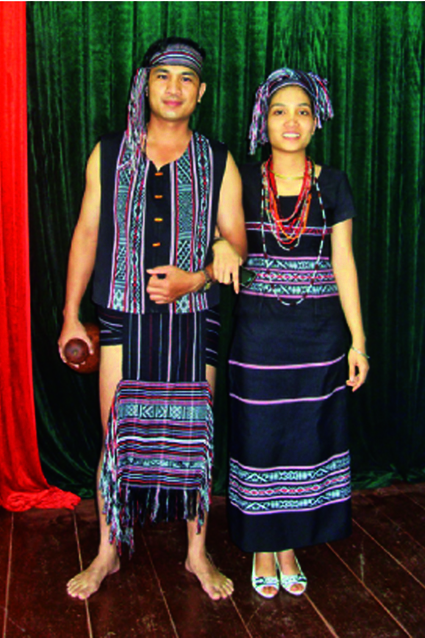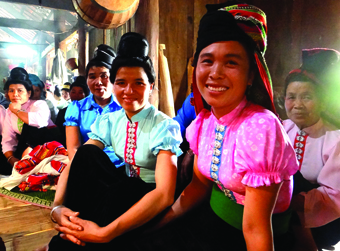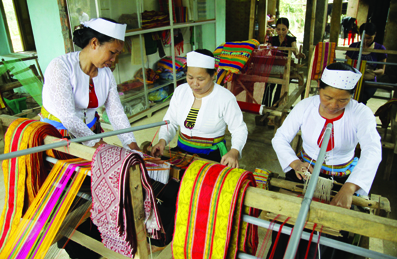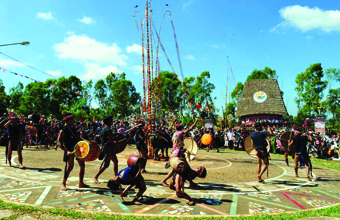Ta Thi Tam
Ethnology Institute
The lunar new year Tet is the biggest holiday for the Xo Dang, an ethnic minority group living in the Central Highlands provinces of Gia Lai and Kon Tum. Tet is the occasion for the group to show its respect for gods and its desire for prosperity and happiness.
Xo Dang people celebrate the new year when their rice crop grows verdant at the approach of spring.
Xo Dang new year celebration is characterized by the group’s buffalo sacrifice ceremony dedicated to Giang (ruler of heaven) and other gods, which is held in a ground in the middle of the village.
Before the ceremony, villagers plant a beatifully decorated new year pole. Around the pole are fixed four rosewood columns about 1.5 meters high, which are tied together with liana. At a date chosen for the ceremony, a young man tethers to the rosewood columns a buffalo which is hunted in the forest earlier by young villagers. The sacrifice ceremony starts with a sorcerer in a red headdress reciting prayers. After praying, he dips a chicken feather into a bowl of chicken blood and wine and splashes it around the new year pole. He then splashes wine onto the buffalo while praying for gods’ support for a year of bumper crop, prosperity, luck and good health for villagers.
The praying service is followed by the sacrifice ritual conducted by four young men, who, each with a sharp lance in their hands, stab the buffalo from the four directions. The animal fell with its head facing the forest, which is believed to be a good omen. The Xo Dang believes all animals come from the forest and thus must return to their home when they die. That’s why, the sacrificers must be skillful enough to make the animal fall to the direction of the forest. If not, they have to slay another buffalo.
After the sacrifice ceremony, villagers make a tray of raw buffalo meat for offering to gods and place it on an altar set up next to the new year pole. The altar, which is made from bambusa, is about three meters long, one meter wide and one and a half meters high. Around the altar are hung lively animal-shaped objects made of wood, bamboo and leaves as a way for Xo Dang people to show their gratitude to gods for sending the animals to them.
After that, fourteen gong players stand in a line in front of the altar, playing a merry tune to welcome the new year. The sounds of the gongs can be heard all over the mountain and forest. Then comes a village patriarch as the ritual conductor who splashes wine around the altar before reciting prayers.
After this ritual, with the buffalo meat, women make a feast for all villagers. After the party, young people go upstream for a new year bath which is believed to bring them luck throughout the year.
The bathing formality is followed by responsive singing. In the meantime older people gather in the communal house, drinking ruou can (rice wine drunk from a big jar through stalks) and telling children legends on the origin and history of the group.
During Tet, Xo Dang people have the custom of visiting every family in the village, wishing a happy new year to the host who will offer guests ruou can and sticky rice served with rooster meat and salt. Each guest must drink a bowl of ruou can with every old man present in the family. After that, guests eat sticky rice in a big basket together with rooster meat and a bit of salt, using their hands without dropping any seed of rice. Then the host and guests drink fresh green tea boiled with rainwater, and smoke pipe tobacco. It takes about ten days for villagers to complete their new year visits to all families.
With a population of nearly 170,000, the Xo Dang lives on swidden cultivation with a small part growing wet rice. Apart from rice, the group grows millet, maize, cassava, tobacco, cinnamon, sugarcane, banana, melon and pineapple. Animal breeding, hunting and fishing are other sources of food supply. The group is also good at weaving, bamboo product knitting, blacksmithing and gold sifting.
Xo Dang typical dishes include soup cooked from vegetable and meat, fish or snail, grilled meat and ordinary or sticky rice served with salt and forest products. The group eats betel and areca and smokes pipe tobacco, men and women alike.-
